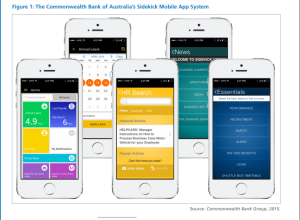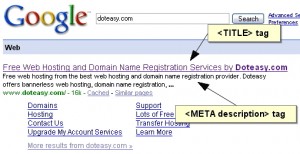— April 9, 2019

Tech startups and peer-to-peer companies aren’t very much alike, but they do have one common denominator: most, if not all, are pioneered by millennial entrepreneurs. And no, this is not another commentary on the many contributions millennials have made to the world of business. It is, however, on the contributions they have made to management.
Millennial-run companies are making waves in terms of company culture and work environment. Stuffy offices are being replaced by the open work space. Chairs are being replaced by sofas and beanbags. And, in some cases, stairs are being replaced by slides.
These are just side-effects of the overall mindsets and ideals that millennials have brought to the work space. They’re transforming management by taking the formality out of employee-manager relationships and embracing social responsibility. This is being done in a number of ways, all of which are being implemented in companies and businesses across the world.
Importance of Work-Life Balance
Previous generations prided themselves on unrequited loyalty and work ethic. Long days and short vacations were building blocks to discipline and respect. While millennials are still proponents of hard work, they’re also introducing self-care into the equation.
Millennial entrepreneurs are preaching the importance of work-life balance. They are implementing policies like unlimited vacations, longer maternity leaves, shorter work days, and employee health programs. They’re also focusing on offering more out-of-office company gatherings and events.
This is because they’re realizing that well-rested and well-treated employees are more likely to maintain their loyalty and deliver higher-quality work. And, rather than taking advantage, most employees are doing just this. It also allows for deeper inter-office relationships and camaraderie, as it allows employees to communicate socially and professionally. Removing this formality makes a workplace feel more inviting.
Research shows that promoting work-life balance improves productivity by 21 percent and employee retention by 33 percent. Not only does it boost employee morale, but it benefits a company’s longevity.
Transparency is Key
As previously mentioned, formalities are a thing of the past in the millennial workplace. No bureaucracy or intricate chains-of-command to deliver one message to your boss. No pyramid of secretaries acting as gatekeepers. Millennial-run companies are built on open-door policies and constant engagement.
This may be partially thanks to social media. Its prominence among the millennial generation has sub-consciously instilled a value of openness, sharing, and constant communication. While this might not have a place at the traditional dinner table, it certainly has a place in a successful business.
Businesses that keep their employees informed of changes, both good and bad, are more likely to instill trust. Even in negative circumstances, trustworthy businesses have a tendency to better retain employees. When employees feel like their bosses value their input, motivation and job performance improves.
Millennial business owners are also strong proponents of emotional intelligence, the inward and outward awareness of needs, feelings, and desires. Empathy and sensitivity to the emotions of others is something that was almost frowned upon in work environments of days past. Millennial bosses are changing this narrative. They want to know what their employees think, and aim to legitimately incorporate their suggestions.
Changing Up Work Environment
Millennials are eliminating the structure of cramped cubicles and offices, and opting for a more open work environment. This is encouraging more collaboration and communication among employees. It also eliminates implied hierarchies and the ever-present notion that offices are reserved for important members of the company.
More and more millennial-run companies are eliminating the workplace altogether. With technological advancements making sharing files and communicating efficiently easier than ever, there’s no longer need for the office. The work-from-home lifestyle removes the limitations of 9-5 scheduling and allows employees with small children to be present without seeking out a caretaker.
By giving employees the opportunity to work when best suits them, many companies are finding increased engagement. In fact, a 2-year case study on the effects of working from home found that those employees had fewer sick days, requested less vacation time, took shorter breaks, and completed more than a full day’s work without experiencing the burnout of commuting and sitting in an office. It also saves CEOs major overhead when it comes to renting and maintaining office space.
This doesn’t mean business owners should just send all their employees home for a day and see how it works. Extensive remote communication networks need to be in place before embarking on this manner of work. Observe the resources remote companies use to make this possible before deciding to take this step for your business.
Kissing Hierarchy Goodbye
The intricate network of Executive Assistants, VPs, Assistant VPs, and other ludicrous managerial titles is being toppled by millennial managers. Increasingly, millennial managers are pushing for holacracy, a self-management concept that disperses control flatly, with equally-distributed power in an organization.
Also known as a flat management structure, this concept eliminates the hostility and competition that often goes with the pursuit of a top-level position. As a result, it maintains harmony within a company and doesn’t allow room for nepotism or favoritism.
Rather than working to surpass a series of gatekeepers in order to contact an executive that may be able to provide a solution to problems, employees within flat management companies work together to find potential solutions. As a result, they share their successes.
Upshot of New Millennial Management
Millennials have scores to teach other generations about business management – and not in the traditional stock-trading sense, but in the employee satisfaction and overall product quality sense. We know that businesses with happy employees perform infinitely better, but many business owners struggle to prioritize their employees’ needs.
The millennial management mindset is one of openness, transparency, and trustworthiness. Many millennial managers are willing to trust their employees before they trust themselves. Risky? Maybe, but it opens a door that can lead to valuable day-to-day insights and unquestionable loyalty.
By implementing these concepts into more companies, business can regain its sense of amiability and the traditional woes of the workforce could be put long behind us.
Business & Finance Articles on Business 2 Community
(59)










